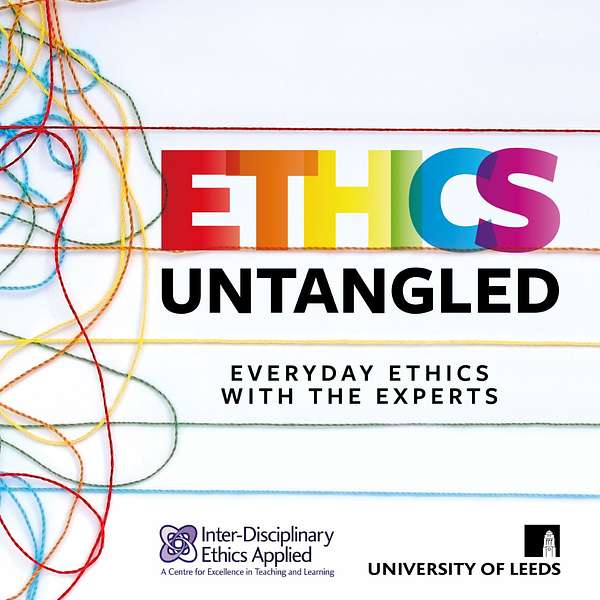
Ethics Untangled
Ethics Untangled is a series of conversations about the ethical issues that affect all of us, with academics who have spent some time thinking about them. It is brought to you by the IDEA Centre, a specialist unit for teaching, research, training and consultancy in Applied Ethics at the University of Leeds.
Find out more about IDEA, including our Masters programmes in Healthcare Ethics and Applied and Professional Ethics, our PhDs and our consultancy services, here:
ahc.leeds.ac.uk/ethics
Ethics Untangled is edited by Mark Smith at Leeds Media Services.
Music is by Kate Wood.
Ethics Untangled
28. What's wrong with conspiracy theories? With Patrick Stokes
Use Left/Right to seek, Home/End to jump to start or end. Hold shift to jump forward or backward.
Conspiracy theories seem to be an increasingly prevalent feature of public discourse. No sooner has some significant event taken place, but the internet is full of alternative explanations for that event, involving hidden and nefarious decision-makers. These theories run the gamut from the wildly outlandish to the somewhat plausible, and your view may differ on where the line should be drawn. There are a number of questions about the rationality of conspiracy theories - whether we should reject them wholesale as irrational, for example, or consider each one on its merits. But there are also some interesting ethical questions, and philosophers, including Patrick Stokes, associate professor of philosophy at Deakin University in Melbourne, have been increasingly turning their attention to these questions. What are the moral costs of accusing someone of being a conspiracy theorist? But also, what are the moral costs of accusing someone of being a conspirator? In what ways might conspiracy theorising be corrosive of trust? And how should we respond to people we know who believe conspiracy theories? I really enjoyed this conversation with Professor Stokes, on the line from Melbourne, on what I think is a really important topic which needs some philosophical attention.
Ethics Untangled is produced by IDEA, The Ethics Centre at the University of Leeds.
Bluesky: @ethicsuntangled.bsky.social
Facebook: https://www.facebook.com/ideacetl
LinkedIn: https://www.linkedin.com/company/idea-ethics-centre/